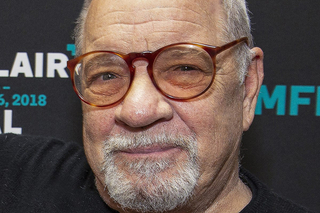Location: Whitney Humanities Center
53 Wall St.
New Haven, CT 06511
Admission: Free
Open to: General Public
Description: Screening of First Reformed: (USA; 2017) + panel discussion with director Paul Schrader and Yale faculty members.
- Paul Schrader director, screenwriter, critic. Discussion follows with faculty member Dudley Andrew, Film & Media Studies and Comparative Literature
- Mary Evelyn Tucker School of Forestry and Environmental Studies, Yale Divinity School
- John Grim School of Forestry and Environmental Studies, Yale Divinity School
First Reformed was an official selection of the Venice Film Festival and the New York Film Festival
In First Reformed, Paul Schrader’s latest film, the pastor of a small church in Upstate New York (Ethan Hawke) deals with the death of his son, for which he feels responsible. While confronting his own demons, the former military chaplain becomes close to a pregnant young woman (Amanda Seyfried) and her volatile, passionate environmentalist husband.
This event is the second part of a two-part series featuring the noted filmmaker, presented by Yale Institute of Sacred Music; Solomon Center for Health Law and Policy at Yale Law School; Yale School of Forestry and Environmental Studies; Yale Film & Media Studies Program; and Films at the Whitney, supported by the Barbakow Fund for Innovative Film Programs at Yale.
Bio:
Although his name is often linked to that of the “movie brat” generation (Steven Spielberg, Martin Scorsese, Francis Ford Coppola, George Lucas, Brian De Palma, etc.) Paul Schrader’s background couldn’t have been more different than theirs. His strict Calvinist parents refused to allow him to see a film until he was 18. Although he more than made up for lost time when studying at Calvin College, Columbia University and UCLA’s graduate film program, his influences were far removed from those of his contemporaries–Robert Bresson, Yasujirô Ozu and Carl Theodor Dreyer (about whom he wrote a book, “Transcendental Style in Film”) rather than Saturday-morning serials. After a period as a film critic (and protégé of Pauline Kael), he began writing screenplays, hitting the jackpot when he and his brother, Leonard Schrader (a Japanese expert), were paid the then-record sum of $325,000, thus establishing his reputation as one of Hollywood’s top screenwriters, which was consolidated when Martin Scorsese filmed Schrader’s script Taxi Driver (1976), written in the early 1970s during a bout of drinking and depression. The success of the film allowed Schrader to start directing his own films, which have been notable for their willingness to take stylistic and thematic risks while still working squarely within the Hollywood system. The most original of his films (which he and many others regard as his best) was the Japanese co-production Mishima: A Life in Four Chapters (1985).
- IMDb Mini Biography By: Michael Brooke | Micheal Brooke Email (qv’s & corrections by A. Nonymous)
